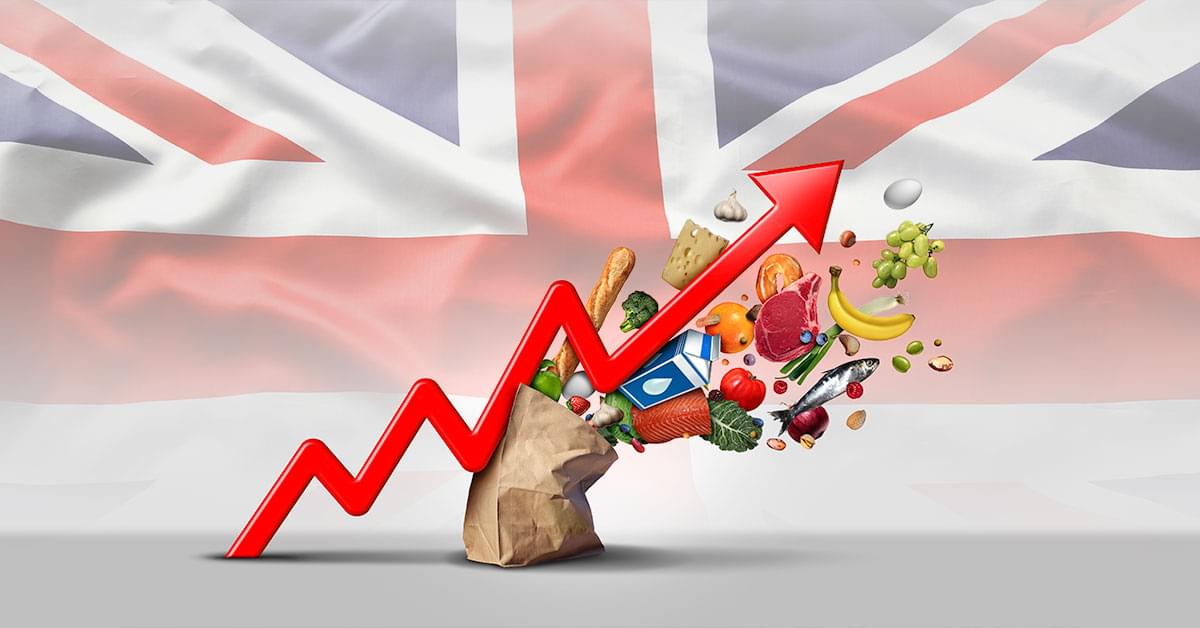
The UK cost of living crisis has been happening since late 2021, and has seen the price of goods steadily rising in comparison to household income. This has resulted in a fall of real income – the actual spending power of earnings.
The depths of the crisis were seen in the period from 2021 to 2022. In October 2022, inflation hit a 41-year high of 11.1%, marking for many the peak of the crisis.
According to The Living Standards Outlook report by The Resolution Foundation, 76% of adults in the UK were cutting back on spending, and more were cited as having to cut back on energy spending too. The cost of living crisis has seen an increase in poverty in the UK, and general tightening of spending across a huge amount of the population, with rental and mortgage prices increasing across the board.
But what has caused this cost of living crisis in the UK, and how long is it going to last? We cover the main causes of the crisis, as well as provide a roadmap for a way out.

What has caused the cost of living crisis?
The cost of living crisis in the UK has been caused by a multitude of global and domestic issues. No single factor has caused the cost of living crisis in itself, but rather a multitude of these things have come about together to contribute to the situation.
Here are some of the main causes of the cost of living crisis.
Inflation
From 2021, inflation began to rise, reaching the peak in 2022 of 11.1%. The Bank of England stepped in and raised interest rates – a central bank's main strategy for correcting high inflation levels. This has made things more expensive at all levels.
The Consumer Price Index (CPI) has also been rising, which in many ways demonstrates the effects of inflation more accurately than regular inflation, as it tracks the prices of everyday goods. CPI inflation reached around 9% in 2022, and combined with the normal rise of wages, contributed to a reduction in household spending power.
Interest rates are still high and are expected to be cut in 2024, with endless speculation as to when the central banks are most likely to announce rate cuts. The general consensus for when rate cuts will happen is summer 2024, as per the ECB’s suggestion.
The UK was previously thought to have avoided a recession in 2023, but as of 16th February 2024, it has transpired that the economy did technically fall into a very small recession. This has increased pressure on the Bank of England to announce rate cuts, but the bank has stuck to its original roadmap.

Energy crisis
Geopolitical tensions with the Russia-Ukraine conflict caused electricity and gas prices to soar as sanctions were put on Russia for its aggression. Due to the reliance on Russian oil for most of Europe, gas became significantly more scarce, and due to electricity being produced in gas-fired power plants, electricity also shot up in price.
A study from National Energy Action estimated that 6.5 million households in the UK were pushed into fuel poverty – a situation where members cannot afford to keep a house sufficiently heated.
Housing & goods increase
Off the back of the Covid-19 pandemic, the average UK house price soared by 20.4% between January 2020 and December 2022
While housing is normally relatively expensive in the UK and has been rising, three years prior to this saw an increase of just 7.8%. The 20% rise pushed the cost of living higher, as it resulted in a scarcity of homes and also an increase in mortgage prices. According to the ONS, the monthly cost of a new mortgage rose by 61% in 2022. This meant that for an average mortgage in the UK, the monthly payments increased almost immediately by £481 – and for many households, a lot more than this.
2023 also saw similar spikes in mortgage payments and average rates for a five-year fixed-rate mortgage plan hit over 6%.
The rise of the CPI shows that the cost of living crisis is still underway. As of the fourth quarter of 2023, consumer prices have increased by 32% since the first quarter of 2015. The CPI is currently at 132 – its highest level.
Wage growth
Wage growth has also matched none of these spikes in expenses, and has resulted in the spending power of the UK population decreasing significantly.
The energy crisis caused UK household spending power to decrease by 8.27% – the worst in Western Europe.
Combined with all the factors in this list, the lack of wage growth has been felt much harder. In simple terms, people are earning less while almost everything is becoming more expensive.

When will the UK cost of living crisis end?
The UK cost of living crisis has no official end date, but it has been estimated by The Institute of Chartered Accountants in England and Wales (ICAEW) that it will last until at least the end of 2024.
However, in the same report, it has also been estimated that ‘real’ wages – the true spending power of earnings – won’t return to normal levels until 2027.
Some experts are event stating that the UK economy has entered a ‘new normal’, suggesting that there will be no clear watershed moment for the crisis to end, and conditions may just gradually improve.
The next event that may see a significant change in the cost of living crisis will be rate cuts. The Bank of England has given no indication when rate cuts will be announced, but once the central bank eases interest rates, it’s likely that conditions will improve.
Conclusion
If you have any concerns about the cost of living crisis in the UK, then you can consult the BBC’s specific section on the cost of living crisis for tips and any news that may arise in the future.
As always, our Expert Analysis section has everything you need to know on currency and finance news, and our Market Commentary has some of the most up-to-date news on the markets.
With CurrencyTransfer, you can sign up for an account today for free and you’ll get a dedicated account manager to assist you with your personal and business payments.
Caleb Hinton
Caleb is a writer specialising in financial copy. He has a background in copywriting, banking, digital wallets, and SEO – and enjoys writing in his spare time too, as well as language learning, chess and investing.



